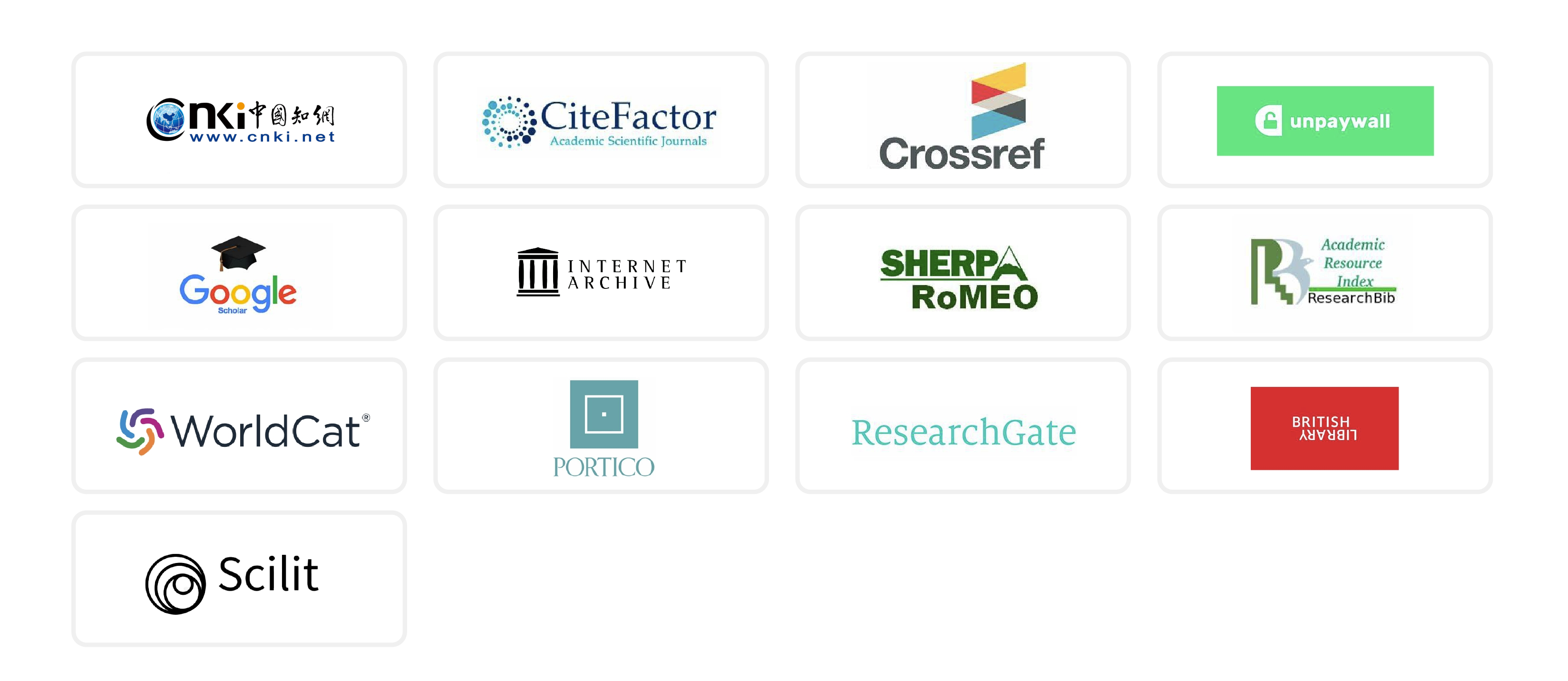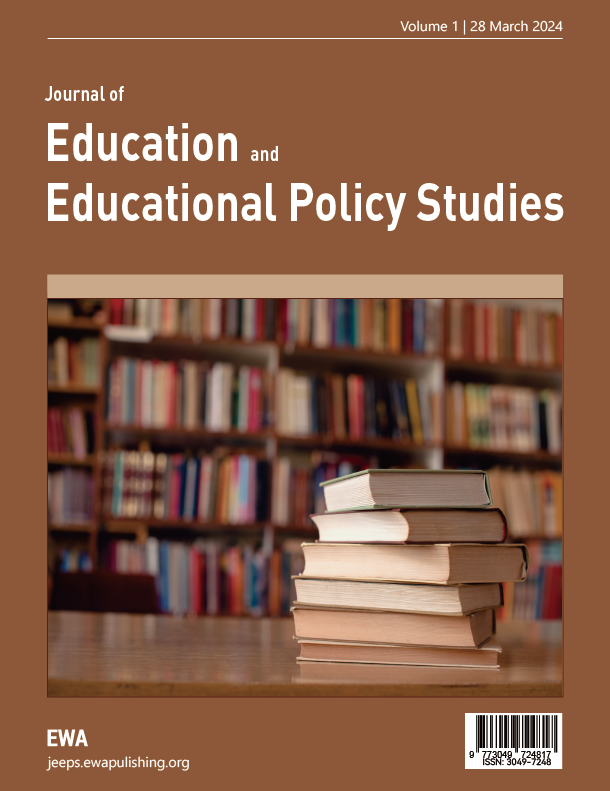

About JEEPSJournal of Education and Educational Policy Studies (JEEPS) is an open access, peer-reviewed academic journal published by EWA Publishing. JEEPS is published bimonthly. JEEPS present latest theoretical and methodological discussions to bear on the scholarly works covering education theories and practices, as well as multifaceted issues arising out of emerging concerns from different situations and debates surrounding latest policies. Situated at the forefront of the interdisciplinary fields of education and educational policy studies, this journal seeks to bring together the scholarly insights cantering on education development, reform of education, educational policy, and relevant subfields that trace to the discipline of education, educational policy studies, and combined fields of the aforementioned. JEEPS is dedicated to the gathering of intellectual views by scholars and policymakers. The articles included are relevant for scholars, policymakers, and students of educations, policy studies and otherwise interdisciplinary programs.For more details of the JEEPS scope, please refer to the Aim & Scope page. For more information about the journal, please refer to the FAQ page or contact info@ewapublishing.org. |
| Aims & scope of JEEPS are: ·Education ·Educational Policy Studies |
Article processing charge
A one-time Article Processing Charge (APC) of 450 USD (US Dollars) applies to papers accepted after peer review. excluding taxes.
Open access policy
This is an open access journal which means that all content is freely available without charge to the user or his/her institution. (CC BY 4.0 license).
Your rights
These licenses afford authors copyright while enabling the public to reuse and adapt the content.
Peer-review process
Our blind and multi-reviewer process ensures that all articles are rigorously evaluated based on their intellectual merit and contribution to the field.
Editors View full editorial board

Huntsville, US
EDM012@shsu.edu

Roehampton, UK

London, UK

Cebu, Philippine
Latest articles View all articles
Under the backdrop of major-power diplomacy in the New Era, university talent cultivation faces many new situations and challenges, including a more complex international landscape, the rise of data diplomacy, and incomplete curricular systems. At present, there remains a significant gap between the era’s requirements and the existing status of higher-education training systems for diplomatic and foreign-affairs personnel. This study focuses on those gaps and explores how Hubei University’s comprehensive virtual simulation experiment in diplomacy and foreign affairs can, as a technical teaching measure, help close the divide between training requirements and current practice. The aim is to provide effective measures for cultivating interdisciplinary, top-tier innovative diplomatic talents who possess global vision, professional competence, logical inductive ability, and political-ideological literacy.

 View pdf
View pdf


This study examines how demographic changes affect private education development using panel data from Zhejiang Province, China (2008-2023). We document striking heterogeneity across educational stages: preschool education's private share declined from 63.6% to 29.5% (-34.1 percentage points), primary education from 9.3% to 6.0%, while senior secondary education increased from 21.5% to 25.6%. We find that a one percentage point decline in school-age population is associated with a 1.234 percentage point reduction in private share for preschool but negligible effects in primary education. The 2018 preschool reform coincided with an additional 12.5 percentage point decline relative to primary education. Heterogeneity analysis reveals that high-quality schools show 66.5% stronger resilience to population pressure, while market concentration reduces vulnerability by approximately 30%. These patterns suggest that education markets adapt through quality differentiation and market restructuring rather than uniform contraction. However, findings from Zhejiang—one of China's most developed provinces—may not generalize to less developed regions. The results highlight the importance of stage-specific policies accounting for varying market structures and demographic sensitivities.

 View pdf
View pdf


Presently, applied universities commonly encounter prominent challenges in the development of new energy vehicle fault diagnosis courses. These challenges encompass obsolete course content, inadequate practical teaching resources, ineffective school - enterprise collaborative education mechanisms, and the lack of a professional certification system. To tackle these issues, this paper puts forward a model characterized by "moderately forward - looking planning, phased procurement, integration of virtual and real resources, and university - industry collaboration" to alleviate the shortage of practical teaching resources. It advocates leveraging in - depth industry - education integration to drive the synchronized updates of teaching content and technology, establishing an integrated course - certification system to streamline university - industry certification channels, and implementing a "progressive" course system. A three - step implementation path for course reform is adopted to improve the quality of course teaching and cultivate new energy vehicle diagnostic and maintenance talents with practical skills and enhanced market competitiveness.

 View pdf
View pdf


In response to the challenges of ideological and political theory (IPT) courses in applied undergraduate education—namely the disconnection between theory and professional practice, and students’ low level of engagement—this paper proposes the teaching concept of a “two-way approach.” Leveraging the data analytics capacity of artificial intelligence (AI) and the real-time interactive functions of Rain Classroom, a practical pathway of “subject collaboration—content adaptation—integration of knowledge and practice” is constructed. Based on teaching practices in ideological and political education at Hainan Vocational University of Science and Technology, the study connects selected knowledge points from courses such as Ideology, Morality and Rule of Law and Outline of Modern Chinese History, while drawing on specific teaching cases from undergraduate programs in Stomatological Technology, Pharmacy, Big Data and Accounting, and Early Childhood Education taught by the author in recent years. The exploration aims to tailor instruction to individual needs, significantly enhance students’ classroom participation and theoretical application ability, and provide a replicable model for reforming IPT courses in applied undergraduate education.

 View pdf
View pdf


Volumes View all volumes
2025
Volume 3October 2025
Find articlesVolume 3March 2025
Find articlesVolume 3June 2025
Find articlesAnnouncements View all announcements
Journal of Education and Educational Policy Studies
We pledge to our journal community:
We're committed: we put diversity and inclusion at the heart of our activities...
Journal of Education and Educational Policy Studies
The statements, opinions and data contained in the journal Journal of Education and Educational Policy Studies (JEEPS) are solely those of the individual authors and contributors...
Indexing
The published articles will be submitted to following databases below:





